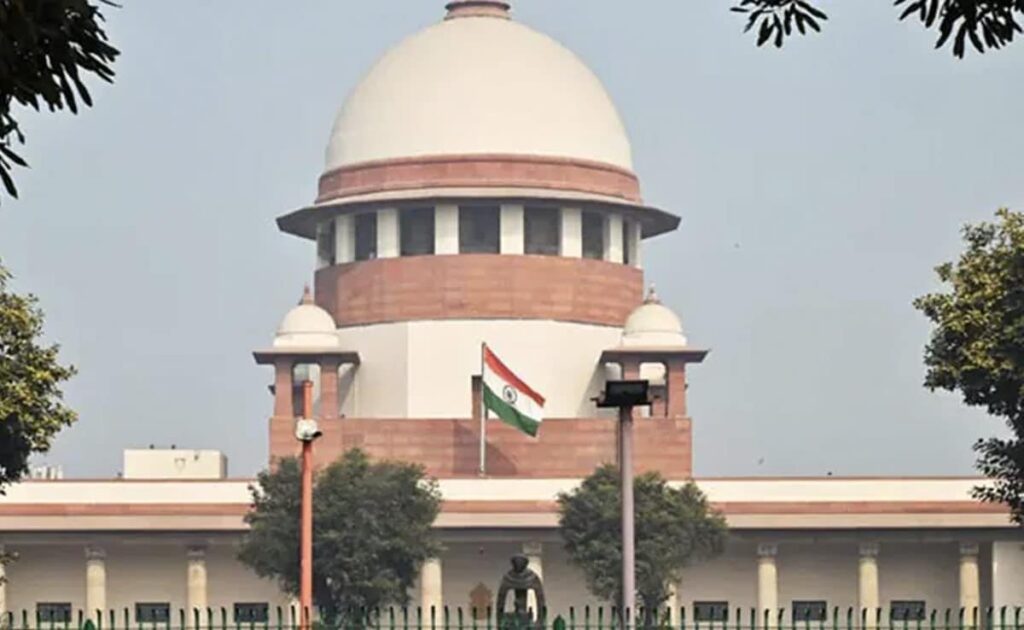The Supreme Court today asked tough questions to the Enforcement Directorate, questioning if the agency’s refusal to provide the accused with documents seized during a money laundering probe does not violate the fundamental right to life and personal liberty.
The bench of Justice AS Oka, Justice A Amanullah and Justice AG Masih was hearing an appeal related to the supply of documents in a money laundering case. The 2022 Sarla Gupta vs ED case pertains to the question on whether the investigating agency can deprive the accused of crucial documents it is relying on in a PMLA case in the pre-trial stage.
The Prevention of Money Laundering Act (PMLA) has come under the spotlight in several high-profile cases after top politicians, including Delhi Chief Minister Arvind Kejriwal, his Jharkhand counterpart Hemant Soren, AAP leader Manish Sisodia and BRS leader K Kavitha, were arrested under this law.
Hearing the matter, the court asked if the accused can be denied the document solely on a technical ground. “Why can’t everything be transparent?” Justice Amanullah asked.
Additional Solicitor General SV Raju, appearing for the ED, replied, “If the accused knows that there are documents, he can ask, but if he does not know and just has assumption, he cannot seek a roving enquiry on this.”
The court then asked if this won’t violate Article 21 of the Constitution, which guarantees right to life and liberty. “Also, in a PMLA case, you may retrieve thousands of documents but you only rely on 50 of them. Accused may not remember every document. He may then ask that whatever document has been recovered from my place,” Justice Oka said.
The government lawyer said the accused has a list of documents and cannot ask for them unless it is “necessary” and “desirable”.
“In modern times, suppose he applies for documents running into thousands of pages. This is a matter of minutes, can easily be scanned,” the bench said.
Justice Oka noted that “times are changing”. “Both us and advocates on the other side, we have objective to do justice. Are we going to be so rigid that the person is facing prosecution but we go and say that the documents are protected? Will this be justice? There are cases so heinous where bail is given, but nowadays people are not getting bail in Magistrate cases. Times are changing. Can we as this bench be so rigid?”
The court said an accused has the right to seek documents if he/she relies on them to seek bail or dismissal of the case. Mr Raju contested this. “No there is no right as such… He can request the court to look into this. Suppose there is no document as such and is a clear case of conviction and he only wants to delay the trial, it cannot be a right.”
The court has reserved the judgment in the matter.
The PMLA has repeatedly come under the lens after several high-profile Opposition leaders were arrested by central agencies under the anti-corruption law. While granting bail to Prem Prakash, allegedly an aide of Jharkhand Chief Minister Hemant Soren, in a money laundering case last month, the court noted, “Relying on the judgment in Manish Sisodia, we have said that even in PMLA (Prevention of Money Laundering Act), bail is a rule and jail the exception.”
The bench referred to Section 45 of the PMLA that mentions twin conditions for bail — there should be prima facie satisfaction that the accused has not committed the offence and that he is not likely to commit any offence while on bail.
All that Section 45 specifies, the court said, is that the conditions must be met for bail. “Liberty of the individual is always the rule and deprivation, by procedure established by law, the exception. Twin test does not take away this principle,” it said.
